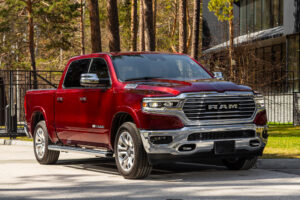Buying a used car can be an exciting yet overwhelming process, especially with so many options and decisions to make. However, without proper planning and research, car buyers may fall into common mistakes that could lead to regret.
Understanding these mistakes and how to avoid them will help you have a smoother car buying experience, and ultimately a car you will love.
Not Setting a Budget
One of the first and most significant mistakes used car buyers make is failing to establish a clear budget. Many individuals jump into the process without determining how much they can afford to spend, which can result in overspending.
Without a fixed budget, you may end up getting a car that stretches your finances or worse, a car you cannot afford in the long run.
Setting a budget before you begin shopping allows you to stay focused on cars that fit within your financial means. It is important to take into account not just the purchase price, but also other costs like insurance, taxes, registration, and maintenance.
Having a clear budget will help you prioritize the features you really need and avoid being tempted by unnecessary upgrades that push you beyond your financial limits.
For a more effective budgeting process, consider securing financing before visiting car dealerships. By getting pre-approved for a loan, you will know exactly what you can afford, and this gives you leverage when negotiating. Ultimately, sticking to your budget will help you avoid regrettable decisions later on.
Skipping the Vehicle History Report
One of the most common mistakes buyers make when purchasing a used car is skipping the vehicle history report. This presents vital information about the car’s past, including accidents, title issues, and odometer discrepancies. Not reviewing this report can lead to purchasing a car with hidden problems that may cost you down the line.
A thorough vehicle history report can give you peace of mind about your purchase. It will help you verify that the car’s history matches the seller’s claims and alert you to any potential red flags. Failing to gather this information before buying can result in unexpected repairs and, in some cases, a car that is not legally saleable.
Before making a final decision, always request the vehicle history report, especially if you are considering a used sedan. It is important to protect your investment by understanding the car’s full background. By doing this, you can confidently move forward with your purchase, knowing the car is in good condition.
Overlooking a Thorough Inspection
Skipping the car inspection is another significant mistake many buyers make. It is easy to assume that a used car in good shape will be free from issues, but without a proper inspection, you may miss signs of wear or potential mechanical failures.
A comprehensive inspection from a trusted mechanic will make sure you are aware of any underlying issues that could be costly to repair later.
Inspecting the car inside and out is needed for assessing its condition. Look for signs of rust, leaks, or tire wear, and check the undercarriage for damage. Additionally, pay attention to the engine and transmission by asking the mechanic to perform a test for any unusual sounds or vibrations.
A professional inspection will help identify if the car is worth the asking price or if there are hidden repair costs that could outweigh the benefits.
Never underestimate the importance of a detailed inspection before finalizing the deal. Even if the car looks great on the outside, there may be issues lurking beneath the surface. Having an expert evaluate the vehicle can save you from a poor investment and avoid any unwanted surprises.
Failing to Test Drive the Car
Skipping the test drive is another common mistake in used car purchases. The test drive is your chance to experience how the car handles on the road and to check for any potential issues with its performance. Without this important step, you may overlook mechanical problems that can only be detected when driving the car.
During the test drive, listen carefully for any unusual noises, such as rattling or grinding, that could indicate mechanical trouble. Test how the car accelerates, brakes, and steers to check that it drives smoothly.
A test drive also allows you to assess the car’s comfort. Missing this step could result in a vehicle that looks good on paper but fails to meet your expectations when you get behind the wheel.
Do not make the mistake of rushing through the test drive or dismissing it altogether. This is the time to thoroughly assess the car’s functionality and determine if it is the right fit for you. Only after this evaluation should you move forward with purchasing the car.
Neglecting to Research the Market Value
Another common mistake in the car buying process is neglecting to research the market value of the car you are interested in. Failing to do so can lead to overpaying for a used vehicle, as you may not know if the price is fair. Understanding the market value allows you to enjoy a good deal and prevents you from being taken advantage of by the seller.
Before you start visiting car dealerships, use online resources to compare prices for similar vehicles in your area. This will help you gauge what you should be paying for the make, model, year, and mileage of the car you are considering. By doing this, you can avoid being misled by inflated prices or dealership tactics designed to increase the price.
Having a solid understanding of a car’s market value will empower you to negotiate confidently and help you avoid paying more than what is fair. It is one of the easiest ways to see to it that you are making a smart financial decision when purchasing a used car.
Ignoring Financing Options
When buying a used car, many buyers make the mistake of relying solely on dealership financing without exploring other options. While dealerships may offer financing, they may not always have the most competitive rates. It is important to shop around and compare financing offers from banks, credit unions, and online lenders to find the best deal for you.
Before committing to any financing plan, take the time to research interest rates and loan terms. This step can save you a substantial amount of money in the long run, as small differences in interest rates can add up over the course of your loan.
If you have poor credit, you may still find affordable financing options by working with a trusted lender who understands your financial situation.
By comparing financing options, you will gain a better understanding of your financial commitments and avoid the mistake of locking into an unfavorable deal. This is an integral part of the car buying process that many buyers overlook.
Focusing Only on Monthly Payments
Focusing only on monthly payments when purchasing a used car can lead to a poor decision. While a lower monthly payment may seem appealing, it may also mean you are paying more in interest or extending the loan term. It is important to look at the total cost of the vehicle and consider both the long-term and short-term financial impact.
Car dealerships may offer lower monthly payments to attract buyers, but these payments could come at the expense of a longer loan term or higher interest rates. Be sure to ask for the full breakdown of costs before signing any agreement.
While monthly payments are a significant factor, the overall cost of ownership should also be a priority when making your decision.
Paying attention to more than just the monthly payment will help you avoid financial strain down the road. Take the time to fully understand all the terms of the financing agreement before moving forward.
Overlooking the Importance of Insurance Costs
When purchasing a used car, many buyers fail to account for the cost of insurance. Car insurance premiums can vary greatly depending on the make, model, and year of the vehicle. This often results in buyers being surprised by high premiums once they have made their purchase.
Before you finalize your decision, request an insurance quote based on the specific model you are interested in. Some cars, such as sports cars or luxury vehicles, come with higher insurance rates due to their repair costs or higher theft rates. Understanding the insurance costs beforehand will give you a more accurate picture of your total car ownership expenses.
It is always a good idea to factor in the cost of insurance when setting your budget. This will prevent unexpected costs that could affect your overall car buying experience.
Failing to Negotiate the Price
Many used car buyers make the mistake of accepting the price on the sticker without attempting to negotiate. In most cases, the listed price is just a starting point, and there may be room for negotiation. Failing to negotiate means you could miss out on potential savings.
When you find a car you are interested in, do not hesitate to ask the dealership for a better price or additional incentives. This could include discounts on the car, free maintenance services, or a better financing offer. Negotiation is a standard part of the used car buying process, and it is important to advocate for yourself.
Even if you are not an expert negotiator, there are many online resources and guides that can help you build your case. Being informed and confident in your negotiations can result in a better deal and save you money in the long term.
Ready to Find Your Next Car?
At Car Time Supercenter, we offer a large inventory of used cars for sale in Tucson, AZ, including affordable options and financing assistance to help you make a smart choice. Contact us today to learn more about our vehicles and schedule your test drive.

There are good reasons people will buy their next used car in Tucson from Car Time Supercenter. But I think we are one of the most trusted used car dealerships mainly because we treat everyone like family. My family has provided quality, dependable local used cars to Tucson customers since 1984, and I’m proud to be a part of our continued success.
Like many family-owned businesses, I grew up going to work with my dad. Falling in love with cars was natural because of my father’s passion, and eventually, I came to love the car business just like him. I officially joined the Car Time Supercenter team in 2012, starting in the finance department. Over the past decade, I’ve learned the used car business and how to treat customers from my family and industry resources.
Today, I oversee marketing, social media, inventory, and reconditioning, so I play an essential role in delivering local Tucson used car buyers the best experience possible. I also help our family business keep up with the times while providing old-fashioned customer service. From attending NADA classes to becoming Allstate certified for back-end products, I continue to learn and add skills to serve our customers better.




